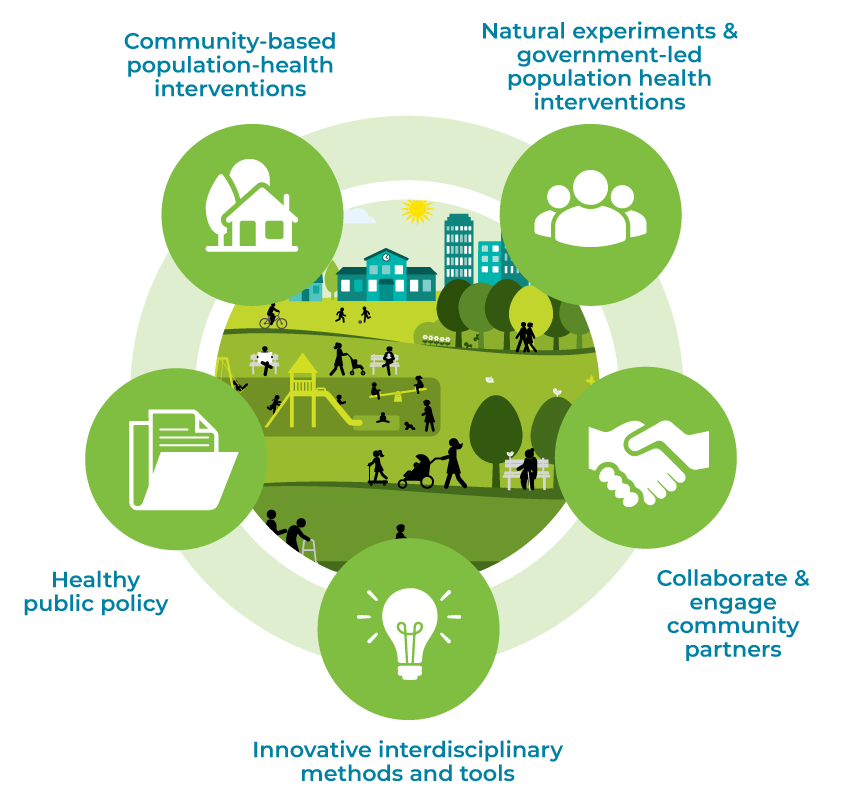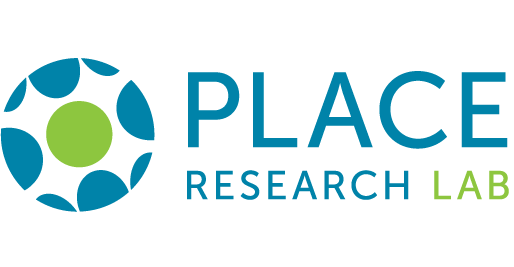Research has shown that understanding place – context, environment, or setting – is critical to the success of public health programs, policies, and practice.
This means that the places where program and policy initiatives occur are just as important as the design of an intervention and the characteristics of the people involved.
In the PLACE Research Lab, we think of ‘place’ as the community environment that results from the interplay of the built (or physical), social, political, and natural environments. A community environment interacts with an individual’s characteristics and circumstances to determine their health. Where a person lives, when and how they access the things they need in their daily life, and the policies that underpin society and the economy all matter for a person’s health. Therefore, understanding the relationships between people, policy, and place through a systems lens is essential for to promote health and wellbeing and prevent chronic diseases.
The purpose of the Policy, Location and Access in Community Environments (PLACE) Research Lab is to systematically investigate relationships between people, policy, and place. We do this by developing, implementing, and mobilizing evidence about population health interventions and other strategies that promote health and chronic disease prevention.
Work in the PLACE lab involves community-based participatory research, qualitative and quantitative methodologies, mixed-methods, and geographic information systems (GIS) mapping.
Our research spans five key areas

Settings-based approach to implement and assess community-based population health interventions on built, social or policy environments, relative to health, wellbeing, and equity outcomes.
Investigate how natural experiments and government-led population health interventions impact health, wellbeing, and health equity.
Design, validate, and use innovative interdisciplinary methods and tools to assess the impact of community environments on health, wellbeing, and equity outcomes.
Support healthy public policy development, implementation, and evaluation in schools, workplaces, organizations, and various levels of government.
Collaborate with and engage community and multisectoral partners to support relevant, timely, and accessible development and use of knowledge. Missing a comma after timely.
